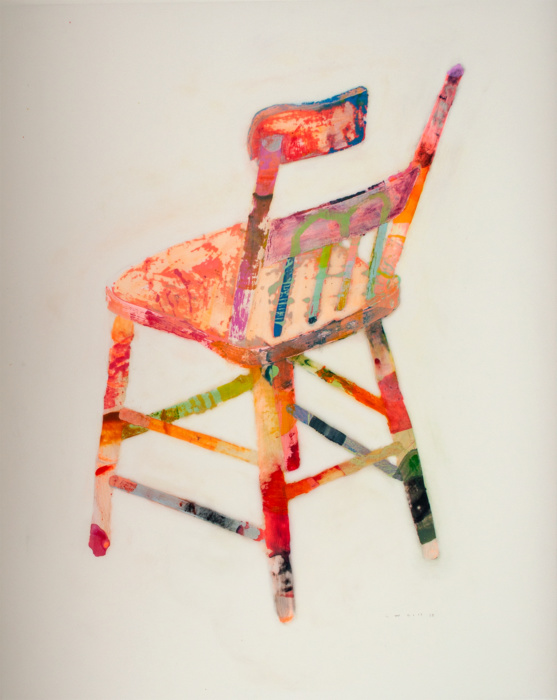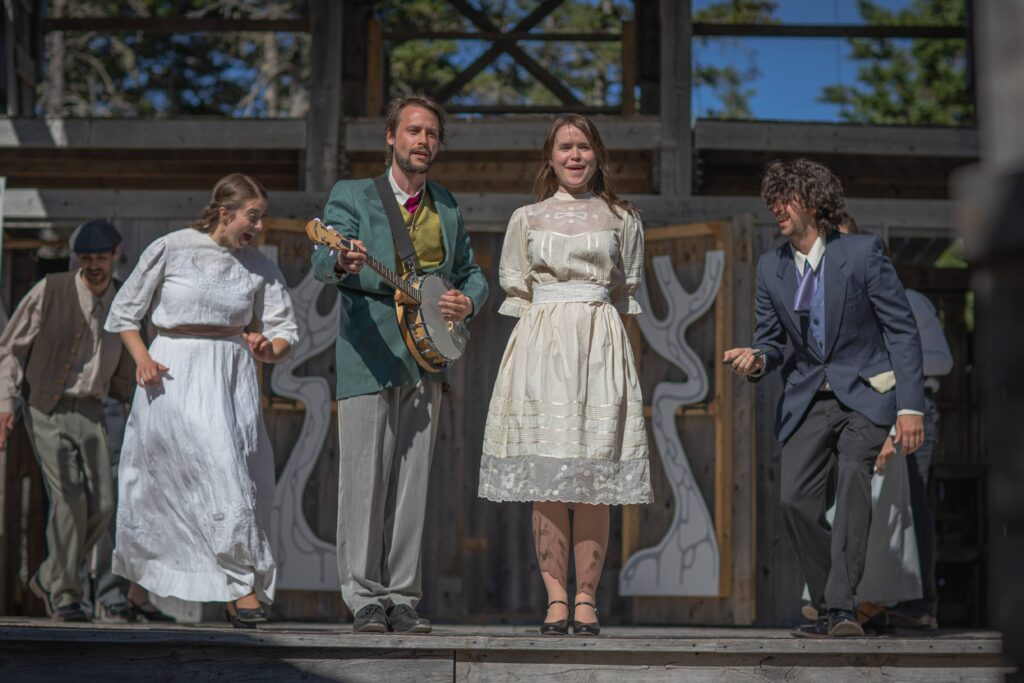Clean-Up
BY Molly Clarke
March 2019
We’re trying to sell the house because none of us want to live here. We have our jobs and our lives and our houses with open concept designs. We all secretly hoped someone else would claim it, keep it in the family. Funny how once upon a time we would have been killing each other for it. I’m feeling a good bit sad over the whole ordeal even though it’s only a cramped two-storey with small windows and peeling clapboard. I remember that summer when Dad built it from the ground up.
Our parents and us four children cooped up in a one-room shack for the summer. The double bed and the cushions on the floor where we’d sprawl in a sweaty sleep until Dad rose and stepped on our ankles, even though he swore he was trying to be careful.
It was a good thing it was summer because we wouldn’t have lasted a full day in there. By the time the slanted morning sun leaked through the only window, we were already at each other’s throats like a litter of puppies. Our aunt Linda lived next door and we’d tumble into her kitchen for breakfast, the dirt of our soles flaking like crumbs on her floor. Mom asked her sister for a shower once a week but felt like any more would be an imposition – she was proud like that, even then – so she’d get me to scrub her head under the hose every second day with a bar of Ivory soap.
Dad always glistened when he was working in the sun. I was pretty young and I pretended it was a sign he was a fairy king, all magically sparkling, but really the sun was so hot that it melted away bits of him everyday. He’d call for our help in hoisting walls but our hands were tiny and soft, and we all had arms like little brown saplings, so he still bore the brunt of it himself.
Mom would walk up the hill at lunchtime, her hair knotted at the nape of her neck and tiny strands stuck to her shiny forehead looking like cracks in porcelain. She’d have bologna sandwiches cut into triangles and our hands would be so dirty that our fingers would leave little black craters in the white bread.

Will Gill
50 year chair # 1
Acrylic ink and India ink on Mylar
2018
Courtesy of Christina Parker Gallery
My favourite part was the painting. First the clapboard, a rusty shade of yellow, and then the rooms inside. Mom had picked a soft pink for the living room. Once after a bath, before all our furniture was moved in, I lay on the floor in my underwear and felt like I was hiding inside a rose.
When we finally moved in we had more space than we knew what to do with. Lila and I were put in one room, the two boys stacked in bunk beds in theirs, and Mom and Dad in their sacred double bed in the master bedroom. For the first week, Lila and I would sneak into the boys’ room once we heard their slow breaths of sleep and curl up like kittens on the carpet.
When we all moved out years later, there was even more space. And more space meant more things. Dad would pick up every lonely teacup and candlestick from every yard sale on the peninsula. When we’d come home to visit at Christmas, our old rooms looked like an abandoned museum. All the junk would be moved to one side and halfheartedly covered with a white sheet. There wasn’t even a closet anymore to unpack your suitcase into, just boxes and boxes piled high with things that would eventually end up back on the side of the road.
“It really doesn’t make sense for us to come home this year, Mom,” Lila had said over the phone last December. “There’s barely enough room for Marion and the girls, let alone me and Dave.”
“Oh, oh don’t you worry about that. I’ll get some of that stuff moved back to the old shed, oh yes, there’ll be lots of room. You know I’ll take care of that,” Mom fluttered over the phone, her voice soft like dandelion fluff.
But Lila had stayed true to her word and only me, my twin girls, my two brothers and their wives squeezed into the house that year. Limbs on the couch and under the dining room table and anywhere we could squeeze. We didn’t mention Lila but Mom still hung her stocking with the white block letters. LILA swung in front of the fireplace, devastatingly thin on Christmas morning when everyone else’s bulged lumpily.
As Lila wipes the dust off the mantle, I want to ask if she regretted it, not coming home for Christmas. Especially since it ended up being the last one. Part of me, the spiteful part, ached for the tears that would spring to Lila’s eyes but another part of me wanted to hold her close and feel the stiffness soften. But Lila’s back is straight and her movements methodical. The silence was comforting in a way so I just keep taking pictures off the wall and laying them in the box marked TO KEEP until the pink wall was only a pincushion with tiny nails littered like needles across its blank space.
It was only the four siblings who gutted the house. We agreed to keep everyone else home, to cut down on bodies and tears and disagreements. But now in the weighted silence, I wish my girls were here. I feel more inclined than ever to tell them stories, to show them the baseboard where I used to write out my crush’s names. Let them say goodbye to this place they barely knew.
| 1979 – Bobby | 1980 – Steven | 1981–Steven | 1982 – Steven (still?) | 1982 – Allan |
I run my finger along the smudged pencil lines and the graphite stains my skin so that my fingerprint looks like a labyrinth. I stare at it for a minute. There is no way that every single person in the world has a different pattern – how was that theory tested? I rub it off in the rough denim of my pants as I hear John walking up the stairs.
He strides into the room with a box marked CROSSES. I flip up the cardboard flap to find exactly that – at least a hundred of them. Porcelain ones with little angels perched on the arms, years worth of those little plant ones they give you on Palm Sunday (were they real palm leaves?), a wooden one Dad had made to add to the mess, at least ten of Jesus’s crucification, his abs defined and gaunt, and little crystal ones that hung in the window and made the light dance.
“What’s our plan with these? I feel pretty sacrilegious throwing them out, but Jen’s not gonna let me take home more than one.”
I see what he means, there’s no room for religious paraphernalia in his sleek white Ikea kitchen. Even if there was, none of us were Catholic like Mom and Dad were. Once we all went to university, it was a constant source of tension; they’d call us Sunday mornings and ask how mass had went this morning, seemingly oblivious to the fact that no priest in St. John’s had seen us in a pew since we moved into town.
“I’d say we pick our favourite and drop the rest off at the church. Some of the ladies Mom hung around with would poke through and grab one or two,” I answer, spinning a crystal one from my index finger and watching it scatter the light.
“Steven, hey?” he points at the dark letters on the white baseboard. “Gonna keep that there for the next family?”
I shrug, not really knowing what I want to do.
“Daniel’s scrubbing off that door frame with all our heights on it, I think. Looks like it’ll need a new coat of paint though, some of them are pretty much tattooed on there.”
I feel like I’ve been punched in the gut, even though it makes sense. Obviously we have to scrub off our meticulous height calculations, someone’s going to want to put their kids’ heights there now, not stare at the summer where John measured himself once a week because he was sure he was having a growth spurt.
Every door I walk through there is something to clean. I remember when the girls and I first got cable and we were watching a show on TLC about hoarders and Bridget said “is Poppy gonna be on this show?”, her little hand squeezing my leg.
I go downstairs, three boxes marked MISC stacked up in my arms. Lila is on her hands and knees, wiping down baseboards with vinegar and the whole room smells like fish and chips.
“I wish this house had burned down,” she says and I know she doesn’t mean it, but I forgot how to comfort her years ago.
John has a truck rented and I start moving boxes out, just to have some more space. Even after the whole living room has been cleared, I still feel claustrophobic, something that’s only seem to come on in my middle age. I run my finger over the nick in the wall where Daniel hit it with his baseball bat some Christmas morning. Over in the corner I see the spot on the carpet where Mom’s chair had sat and the bloodstain from one of my nosebleeds.
I hear a choking sound from the kitchen and I go in to find Lila crying. When we’d moved in, Dad had painted the kitchen gold at Mom’s request and he must have spent six weeks trying to track down gold paint. A bucket of soapy water sits at Lila’s feet and she has a dripping sponge in her hand. She’s taken down the big cross that hung at the head of the table, where Dad would bow his head every evening to say grace. She’s scrubbing the wall so fiercely that her back muscles are all tensed up and she leans into it like she’s pushing a car. The shape of the cross is a deep gold, stained onto the wall after the rest has been bleached by years of searing afternoon sun and glowing sunsets.
“It won’t go away,” she gasps. “I can’t get rid of it.”
Her breath starts to choke her and I wrap my arms around her slight body. The sponge hangs limply from her hands, soaking our socks as the suds melt down the wall. The sun seeps through the window and sets the room on fire, while the imprint of the cross glows staunchly in the silence.



